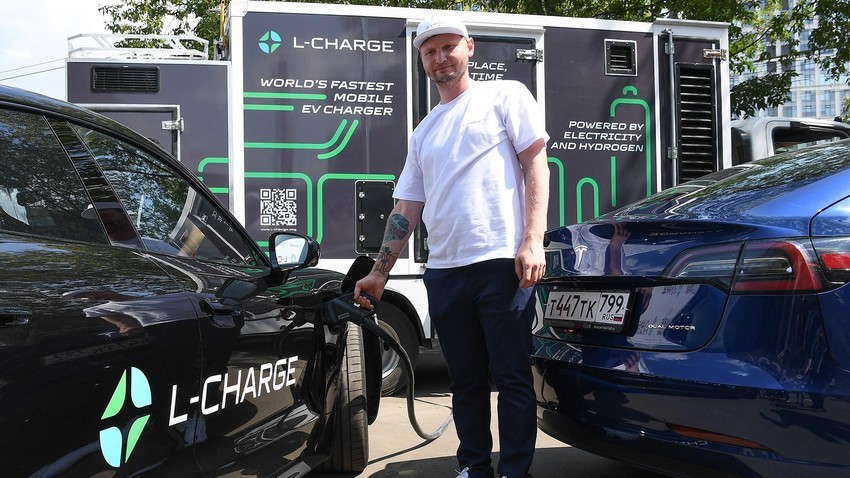The survey showed: over 50% of EV owners in Europe are not satisfied with mobility beyond big cities

According to a servey, conducted by L-Charge, the EV-chargers manufacturer, only 34% of EV owners said they are completely satisfied with the existing charging infrastructure, the speed of charging and the charging prices. Notably – over 90% of those sais the are satisfied have never experienced long-distance travelling on their EVs. More than 1000 EV owners participated in a survey.
While most electric vehicle (EV) owners primarily charge their vehicles at home, or public chargers in densly populated urban areas are satisfied with the chrging infrastructure, a significant part of the car ownership experience as a long-distance traveling remains unsatisfied. Owners’ ability to recharge their vehicle’s battery in any place is a key factor in the broader adoption of EVs, particularly among those who wants or need to leave urban areas.
Fast charging facilities are still located in around bigger aglomerations and densely populated urban areas and along the major highways, connecting urban areas, like those between Barcelona and Madrid, or a Greater Paris area. Beyond these areas the chargin infrastructure is rarely met and provides low charging power. Around 56% of EV owners said they are not satisfied with the existing charging infrastructure. They say they feel limited with their mobility opportunities. Notably among those complains about infrastructure are those having latest electric car models, like Tesla Model 3 and Porshe Tycan, also those regularly traveling to or through rural areas.
L-Charge CEO, Dmitry Lashin says “LNG/H2 as the Fastest Source to Build Electric Vehicle infrastructure”.Dmitry highlighted: “63% of EV owners are forced to change their travel plans because of the lack of charging infrastructure. But they won’t anymore.”
L-Charge, the super fast off-grid EV-charger manufacturer, conducted a survey as company started its roadshow across european countries – Germany, France, Spain, Neterlands.
About L-Charge
L-Charge’s mobile EV-charger is a mini-power station for fast charging of electric vehicles. The main feature of the L-Charge solution is the ability to convert the engine operation from natural gas to 100% hydrogen when hydrogen will become available.
There are already several services in the world that provide charging calls for electric cars, but they all charge slower. The advantage of L-Charge is that their charger is a mobile mini power station and can therefore charge any electric car in 10-20 minutes. The charger uses liquefied gas or hydrogen to generate power. One mobile L-Charge station can charge 24 electric cars per day.
Earlier L-Charge launched a mobile charging station operating on gas for test operation in Moscow, planning a transition to hydrogen electricity generation. A mobile station is a truck with a set of equipment installed on board that operates on the principle of a gas power plant. The ultra-fast charging station can be called up via the mobile app and charge the electric car for 100 km in just 5-10 minutes. Converting charging stations to generate electricity on hydrogen could help to achieve zero CO2 emissions. That will make the generation of electricity for off grid charging stations 100% environmentally friendly.
As part of the trial tests, the charging service operates in October in Barcelona, Madrid, Paris and Amsterdam. This is how the company intends to assess the level of demand for the service.
Website: https://l-charge.org/
Facebook: https://www.facebook.com/lchargeusa
Twitter: https://twitter.com/lchargeusa





